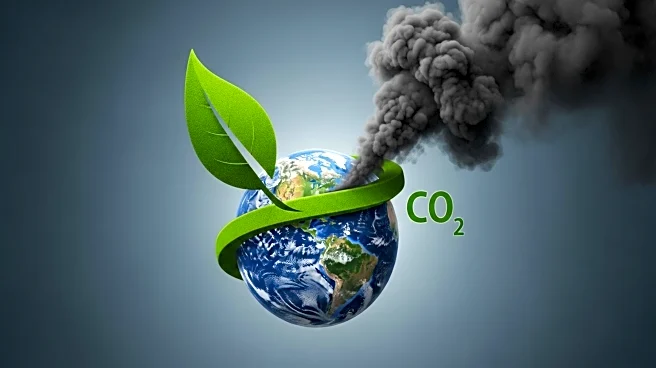What is the story about?
What's Happening?
A recent report by Cerulogy, commissioned by Transport & Environment (T&E), highlights that global biofuels production emits 16% more CO2 than the fossil fuels they replace. The report criticizes the use of 32 million hectares of land for biofuel crops, which only meet 4% of global transport energy demand. The study suggests that using just 3% of this land for solar panels could produce the same amount of energy, emphasizing the inefficiency of biofuels as a climate solution. The report calls for global leaders to limit the expansion of biofuels, especially as demand is expected to rise by 40% by 2030.
Why It's Important?
The findings of the Cerulogy report have significant implications for global climate policy and energy strategies. Biofuels, often promoted as a cleaner alternative to fossil fuels, are shown to contribute more to CO2 emissions, challenging their role in reducing global carbon footprints. The report suggests that prioritizing solar energy could be more beneficial, as it requires less land and water, and offers a more sustainable solution. This could influence policy decisions at international climate conferences, such as COP30, and impact industries reliant on biofuels, including shipping and aviation.
What's Next?
The report urges governments to reconsider their support for biofuels and focus on more sustainable energy solutions like solar power. As biofuel demand is projected to increase, particularly in shipping and aviation, policymakers may need to address the environmental impact and explore alternatives. The upcoming COP30 in Brazil could be a platform for discussing these issues, potentially leading to new agreements on limiting biofuel expansion and promoting renewable energy sources.
Beyond the Headlines
The report highlights ethical concerns regarding land use for biofuels, which could otherwise be used for food production or nature restoration. The reliance on biofuels also raises questions about water usage and deforestation, particularly in countries like Brazil, which are expanding biofuel production. These factors contribute to broader environmental and social challenges, emphasizing the need for a balanced approach to energy policy.















